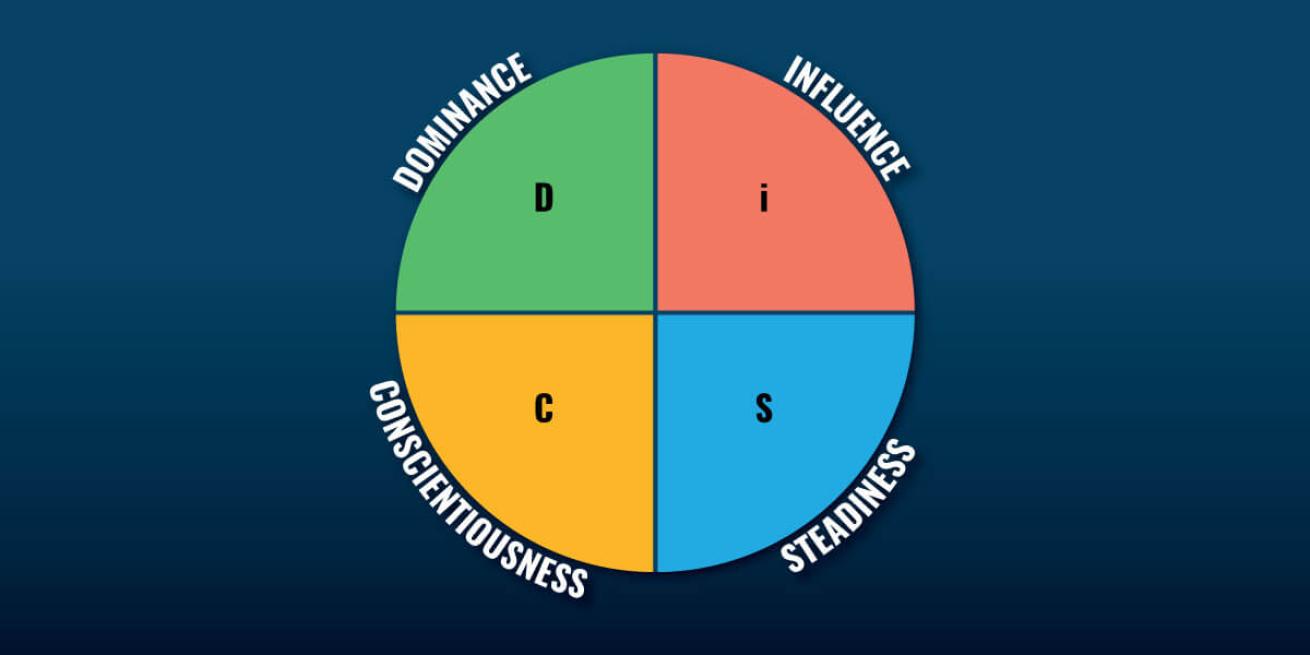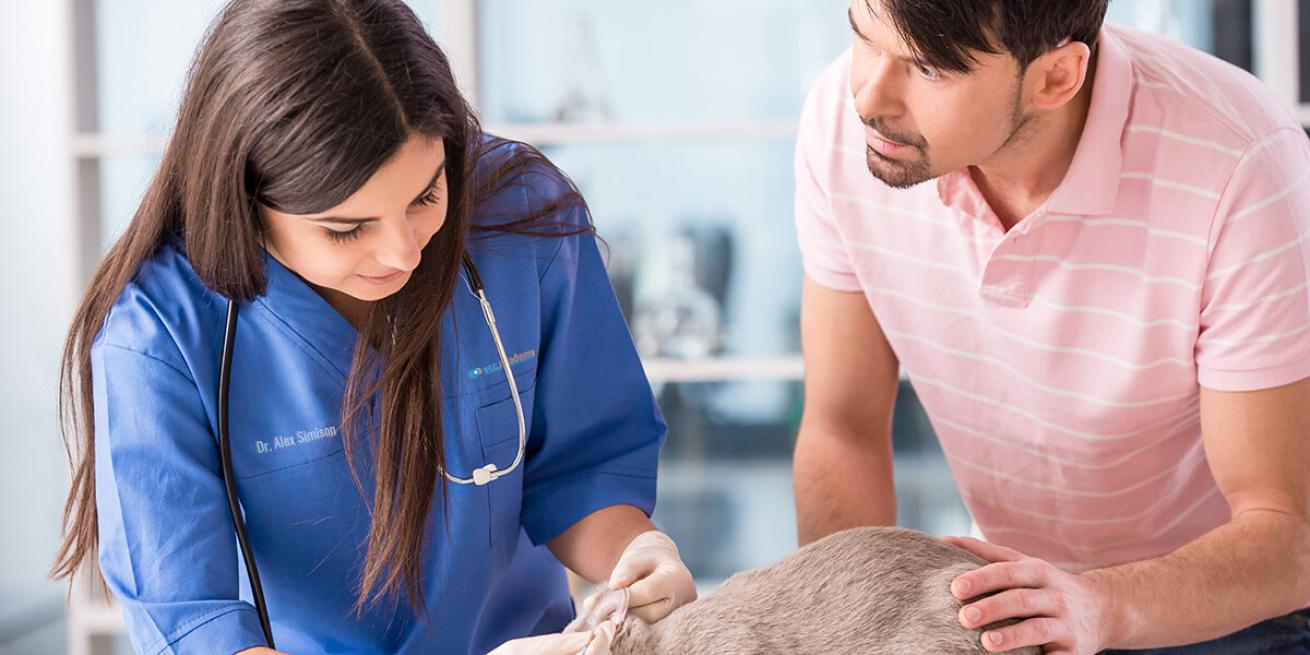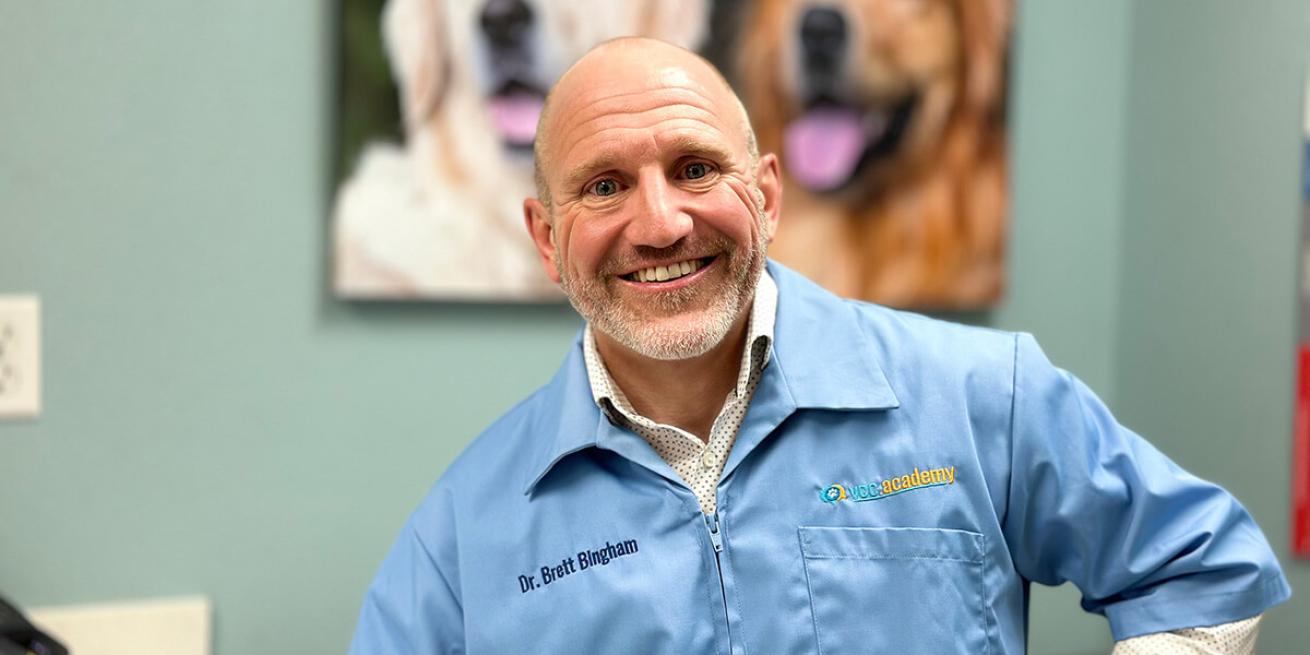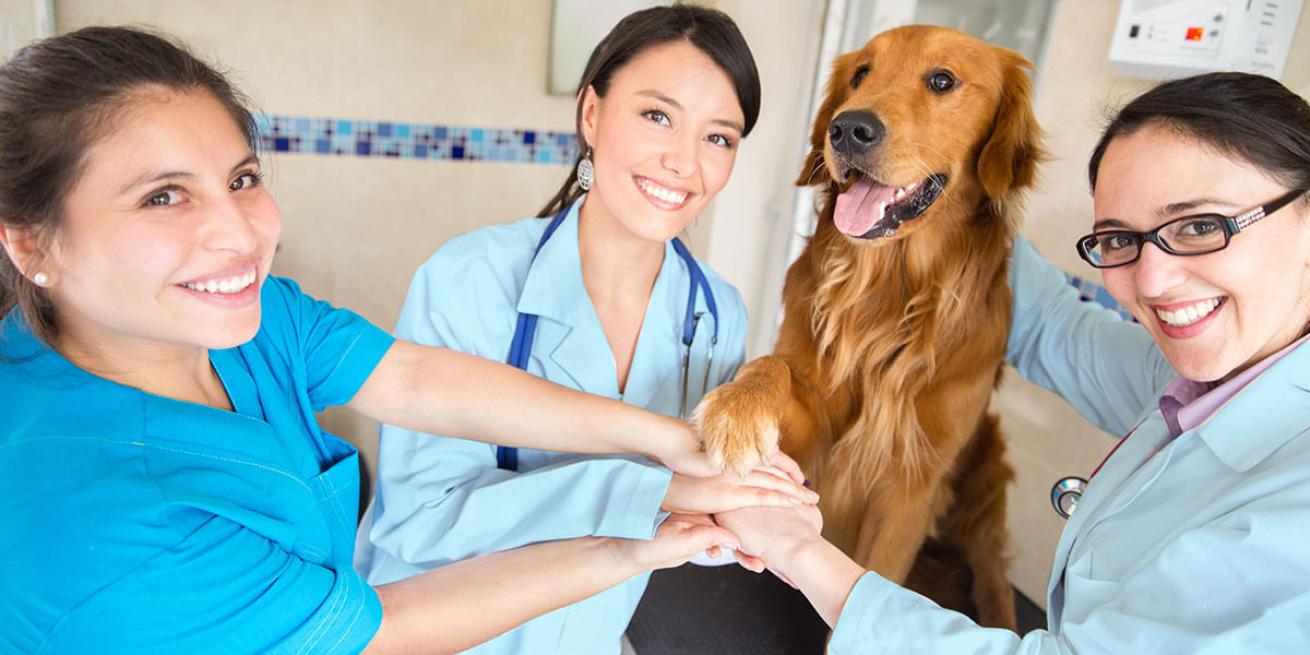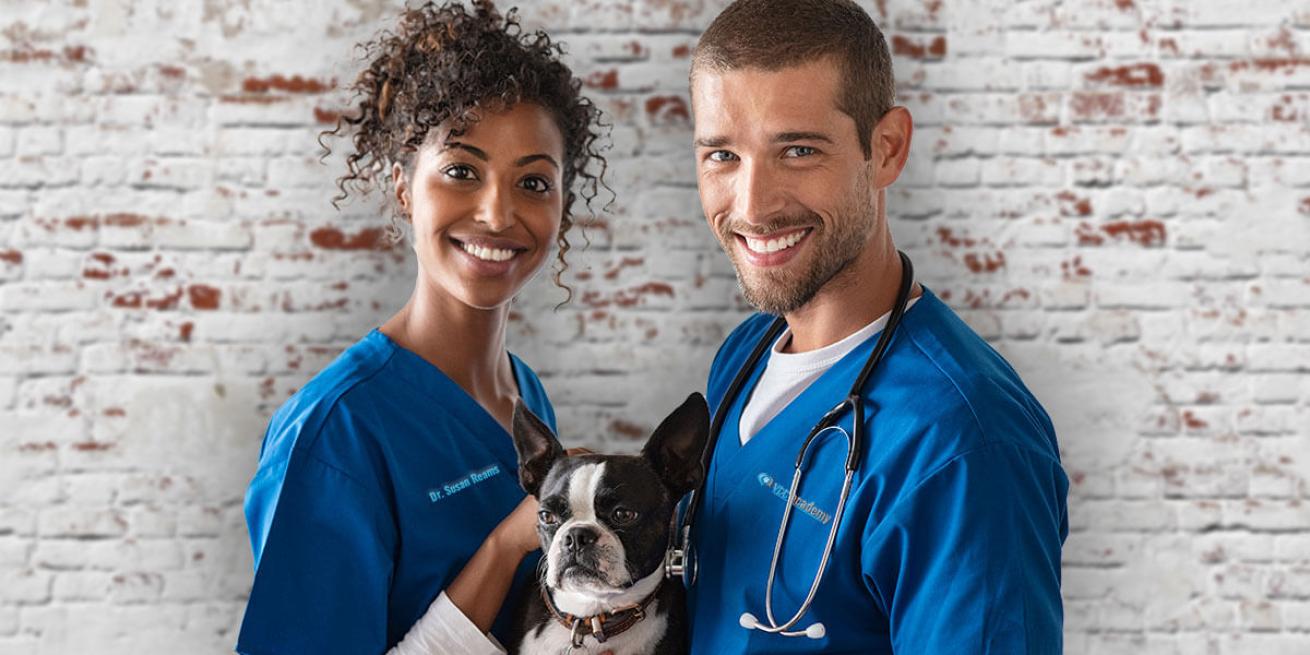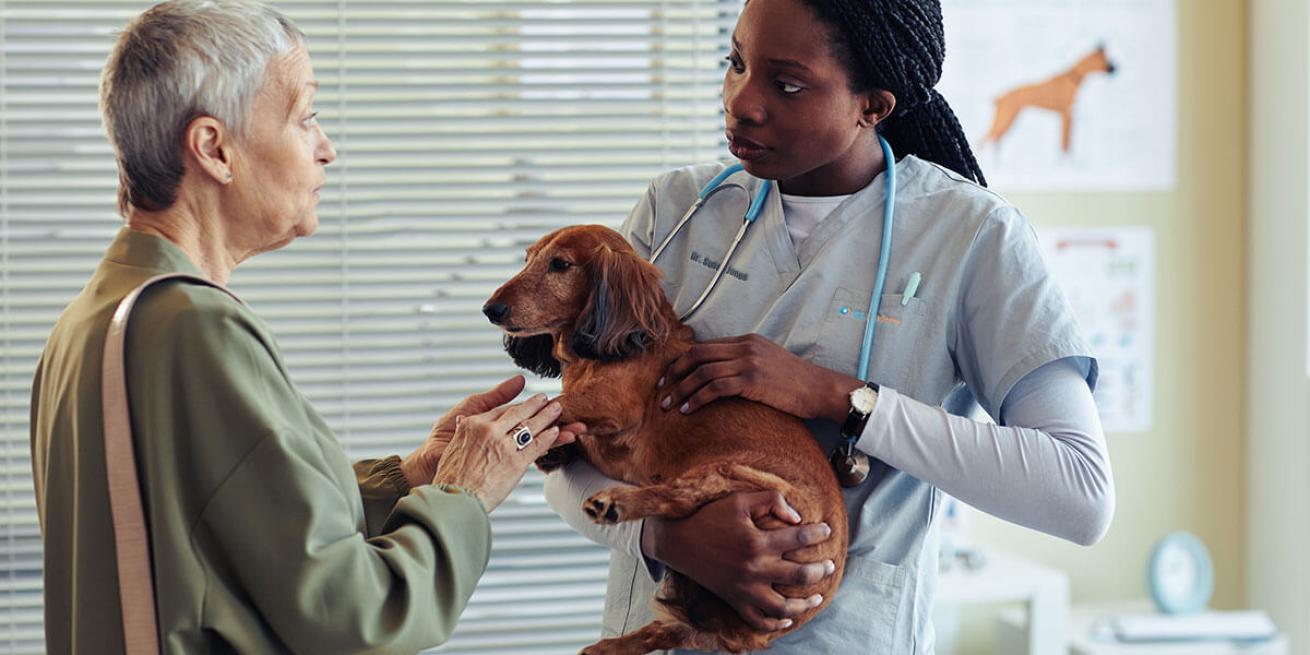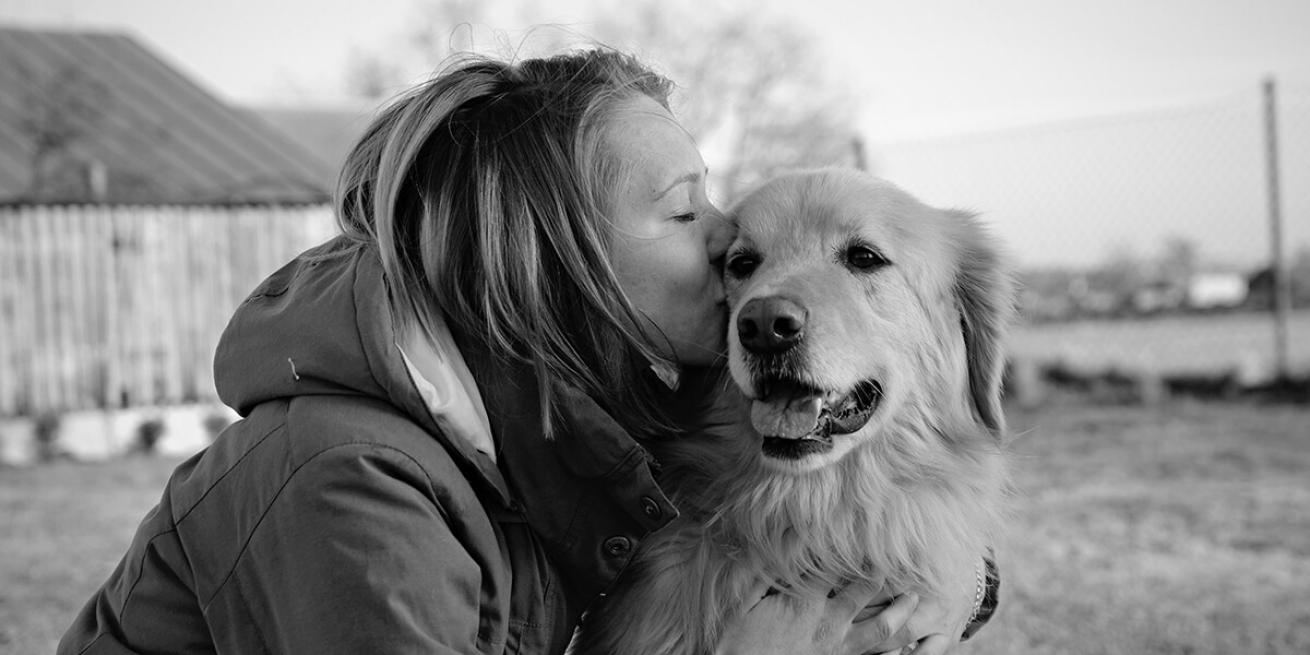Running a successful veterinary hospital is not just about providing top-notch medical care to animals; it also requires a motivated and engaged staff. Effective communication plays a crucial role when it comes to inspiring and motivating your veterinary hospital team. By fostering open lines of communication and prioritizing communication training, you can create a positive work environment that encourages team collaboration, boosts morale, and enhances the overall productivity of your staff. But how do you get to that point with your team?
In the realm of personality assessment tools, DiSC stands as one of the most widely recognized and respected frameworks. It has an interesting history that dates back to the early 20th century. The theory was developed by psychologist William Moulton Marston, who is also known for creating the concept of the lie detector test and for his work on the fictional character Wonder Woman (if you can believe it).
Effective communication is the cornerstone of any successful organization, and veterinary hospitals are no exception. Interpersonal communication, specifically, plays a crucial role in creating a positive and nurturing culture for both the animals and the people involved. In this blog, we will delve into the significance of interpersonal communication within a veterinary hospital and explore how it enhances patient care, client satisfaction, and overall teamwork.
You might not be aware that I’m the owner of a digital marketing agency in addition to my role at VCC.Academy. Over the years, I’ve learned that a positive work culture is essential for any organization. I’m a very strategically minded person. As a D (my DiSC personality style), I’ll drive for goals based on my long-term strategy.
Veterinary medicine is an ever-evolving field, and as veterinarians, we find ourselves constantly adapting to new technologies, treatment modalities, and changes in the industry. Over the course of my 20-year career, I have witnessed numerous transitions within veterinary hospitals. In this blog, I aim to share my insights and experiences on navigating these transitions, highlighting the challenges and opportunities they present, and offering practical advice to fellow veterinarians facing similar situations.
In today’s rapidly evolving business landscape, veterinarians face numerous challenges in keeping their hospitals competitive and thriving. One critical factor that often determines a hospital’s success is its culture. A hospital’s culture encompasses its values, beliefs, norms, and practices. It influences how team members interact, make decisions, and pursue goals. Let’s dive into the importance of a strong culture in your veterinary hospital or clinic.
In 2002, the British Cycling team was considered to be one of the worst in the world. They had only won one gold medal in the last 76 years of the Olympics. However, in 2003, Dave Brailsford became the performance director for British Cycling. He believed in the concept of “marginal gains” - making small improvements in every aspect of cycling to achieve a significant overall improvement.
You might be considering a personality assessment for your veterinary hospital. There are likely a variety of reasons why assessments are right for you. Here are the top five reasons I think personality assessments might make sense for you:
Personality assessments are tools that are used to measure an individual’s personality traits, characteristics, and behavior. They are commonly used in a variety of fields such as career counseling, employee selection, and clinical psychology. There are many different personality assessments available, each with its own strengths and limitations.
Of course, at VCC.Academy we have our preference for personality tests in a veterinary hospital or clinic. I’ll share my preference below. First, I want to discuss the five most common personality assessments:
Have you ever gone to a doctor appointment and felt like you were being pushed through a series of events without any clear understanding of what was happening or what was going to happen next? It can be a very stressful experience.
This is exactly what happened to me last week when I went to the optometrist to get my eyes checked.
What is a Chatty Cathy?
You may be too young to remember the Chatty Cathy doll. She came to the market in 1959 and had a little pull string to say phrases like, “I love you” or “I hurt myself!”
Now, the phrase is used to describe a person who talks a lot but doesn’t necessarily say anything of real consequence. The key to understanding your chatty Cathy is that she (or he as the case may be) feels that what she is saying is important, and it may be, so you can’t simply dismiss what she is saying.
Every veterinary hospital is made of a variety of personalities. You likely have certain traits that led you to veterinary medicine but your personality can be very different from those around you. The reality is that your hospital would likely fail if you didn’t have many differing personalities working together.
Of course, personalities can butt heads if we aren’t careful. You might have one personality type that is very aggressive but another that is very passive. This could be a recipe for disaster if not managed properly.
The internet is an amazing tool. It provides us with valuable information when we want to learn about things like buying a car or planning a vacation. As veterinarians, it can help us develop competencies in core areas like communication training for your practice that 30 years ago would not have been possible.
In addition, it can also give our clients opportunities to do research on conditions that their pets might experience. I’m sure you’ve experienced, more than once, when a client suggested a Dr. Google diagnosis. This can be helpful and a hindrance.
I would bet anything, as you entered vet school, your goal was not to be the world's ‘okayest’ veterinarian. If you were anything like me, I'm sure you had goals to be amazing. You had a vision in your mind of what it meant to be a great vet.

